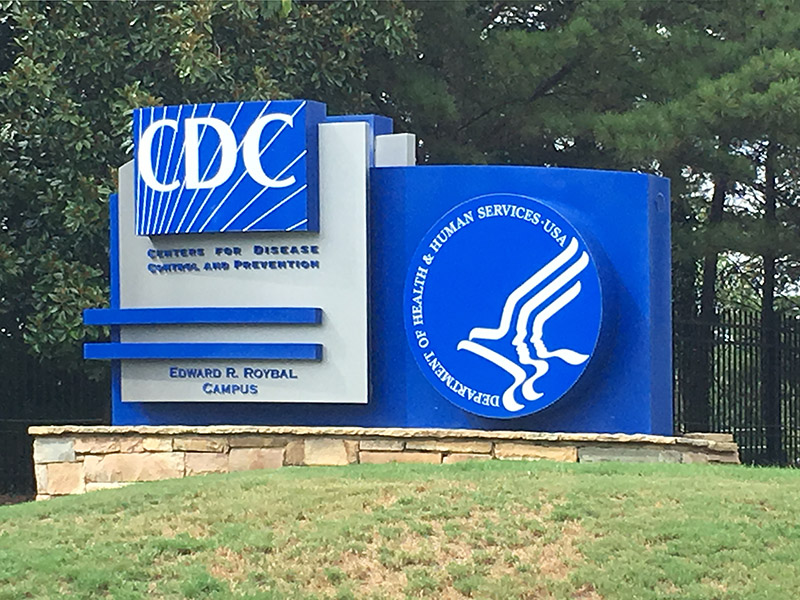Transgender Day of Remembrance set for Monday, Nov. 20
Local communities will honor those transgender people killed by violence in recent years

D.C.’s LGBTQ communities and their allies will recognize Transgender Day of Remembrance over the next few days, with the chief event taking place at 5:30 p.m. on Monday, Nov. 20, at the Metropolitan Community Church of Washington, D.C.
A global event held annually since 1999, the Transgender Day of Remembrance honors transgender and gender-nonconforming people who have been victims of violence or have lost their lives due to their gender identity.
Cities throughout the world often hold candlelight vigils recognizing the victims, particularly those with local ties.
While D.C. has had no transgender murders this past year, there has been an uptick in anti-transgender sexual assaults and robberies, particularly over the summer and early fall.
As a result, this year’s memorial ceremony at Metropolitan Community Church will recall the 12 transgender victims killed dating back to the year 2000, beginning with the murder of Tyra Henderson, who was found beaten to death in the rear of a building in Columbia Heights. Of those 12 murders, eight remain unsolved.
Organizers for the D.C. Transgender Day of Remembrance have invited community and civic leaders to the memorial service, including special guests Mayor Muriel Bowser, MPD Chief Peter Newsham, and Councilmember David Grosso (I-At-Large), who are all expected to attend.
Montgomery County will hold its own Transgender Day of Remembrance memorial service from 4-6 p.m. on Sunday, Nov. 19 at the Montgomery County Executive Office Building in Rockville. Mourners at that event will remember the lives of two transgender women killed in recent years: Zella Ziona and Keyonna Blakeney.
Ziona, 21, was shot in the head behind the Lakeforest Mall in Gaithersburg, Md., in October 2015. Her assailant, Rico Leblond, of Germantown, was convicted of the murder earlier this summer.
Blakeney, 22, was found stabbed to death in a Rockville hotel room in April 2016. In August, Keith Renier, of Southeast D.C., pleaded guilty to second-degree murder, admitting that he had worked with an accomplice to set up a date with Blakeney in the hotel room in order to rob her. He was subsequently sentenced to 30 years in prison.
Last week, his accomplice, Arbra Arnie Bethea, pleaded guilty to being an accessory to the crime after the fact, earning him 10 years in prison, with no probation.
For the third year in a row, the Baltimore Transgender Alliance will hold a Transgender March of Resilience in lieu of a vigil, according to the group’s Facebook page. From 5:30-7 p.m., the group will assemble at the YNOT lot and march up Charles Street to 27th Street. Following the march, the community will gather for a banquet with poetry and live music from 7-9 p.m. outside of the 2640 Space.
“Baltimore’s Trans March of Resilience has always been about our ability to define ourselves and empower each other,” the event page reads. “Together we will take to the streets and lift our voices for what is sure to be an amazing night.”
In the United States, an estimated 25 transgender or gender-nonconforming people, mostly transgender women of color, were killed by hate-motivated violence in 2017, which is almost on target with the 27 killed in 2016.
Since January 2013, the Human Rights Campaign has documented at least 102 transgender victims of violence — a number that is thought to be an underestimate due to lack of reporting around many victims’ gender identity.
This year’s murders were documented in a report released by HRC that called for greater action on the part of policymakers to address the uptick in anti-transgender violence.
The report also examines and proposes solutions to factors that have contributed to those deaths, including anti-LGBTQ prejudice, racism, easy access to firearms, and anti-transgender political campaigns undertaken at both the national and state levels.
“The epidemic of violence against transgender people is an urgent crisis that demands the nation’s immediate attention,” HRC President Chad Griffin said in a statement. “The unique and tragic stories featured in this report reflect the obstacles that many transgender Americans — especially trans women of color — face in their daily lives. It is crucial that we know these stories in order to combat the transphobia, misogyny and racism fueling this violence so that we can end this epidemic before it takes any more lives.”
Support Metro Weekly’s Journalism
These are challenging times for news organizations. And yet it’s crucial we stay active and provide vital resources and information to both our local readers and the world. So won’t you please take a moment and consider supporting Metro Weekly with a membership? For as little as $5 a month, you can help ensure Metro Weekly magazine and MetroWeekly.com remain free, viable resources as we provide the best, most diverse, culturally-resonant LGBTQ coverage in both the D.C. region and around the world. Memberships come with exclusive perks and discounts, your own personal digital delivery of each week’s magazine (and an archive), access to our Member's Lounge when it launches this fall, and exclusive members-only items like Metro Weekly Membership Mugs and Tote Bags! Check out all our membership levels here and please join us today!
























You must be logged in to post a comment.